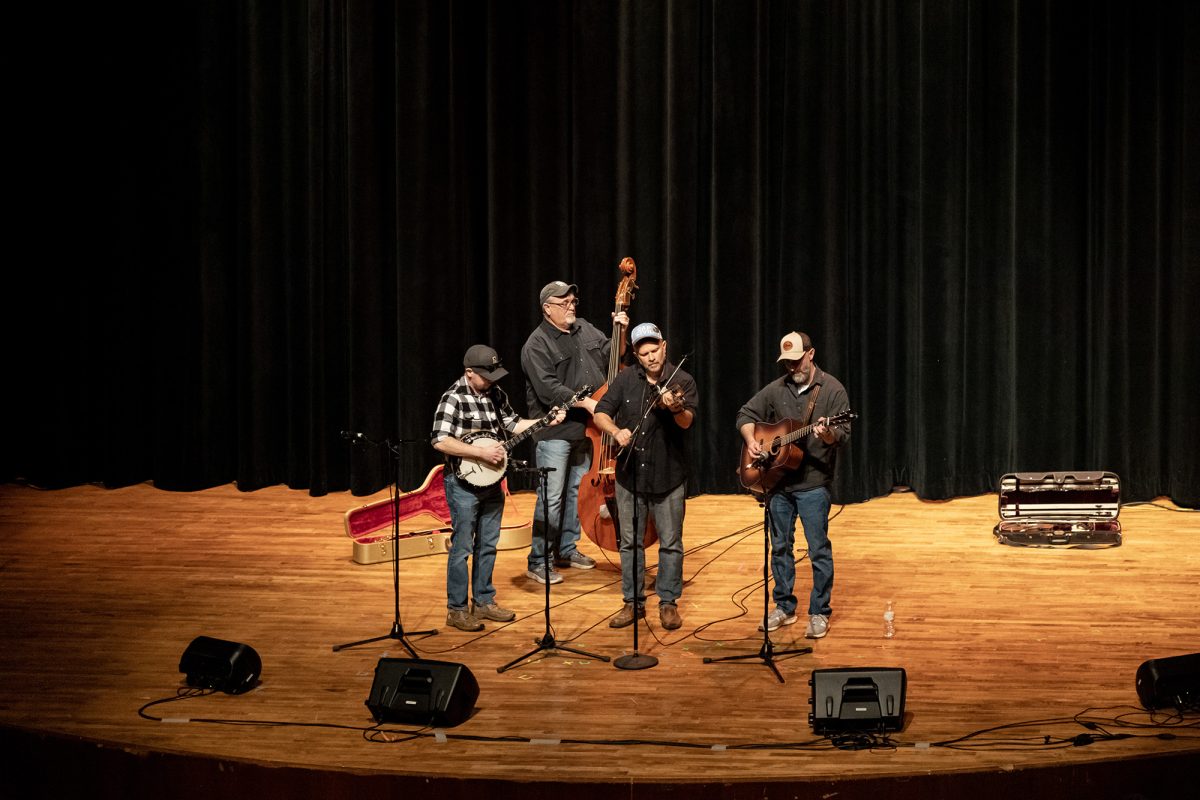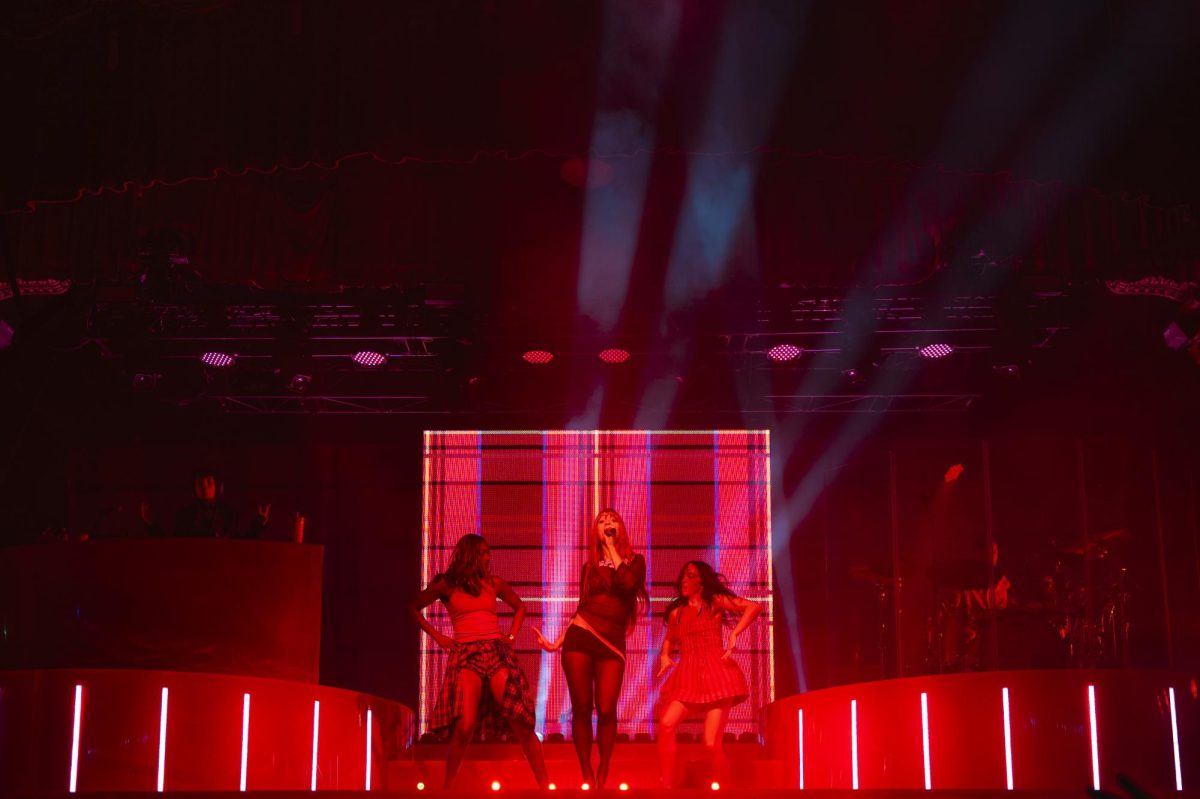The audience size of the Pacifica Quartet has grown tremendously over the past few years. Whereas two years ago, Mandel Hall was a sea of empty chairs during a performance, a surge of concert-going enthusiasts have recently taken the hall by storm.
Such was the case this past Sunday when the Pacifica Quartet presented their penultimate concert of the 2005-2006 season. With this welcoming and excited group of people, the overwhelming sense of expectation was enough to hint at the possibility of a brilliant concert. In performances past, the Pacifica has been less than brilliant. Recycling pieces and playing with an air of stale enthusiasm, it seemed that the Pacifica exhausted themselves.
Not so this afternoon. With two guest instrumentalists (Phillip Ying on the viola and David Ying on the cello) and a totally fresh concert bill that included Mendelssohn’s Quartet in E-flat Major, Op. 12; Shostakovich’s Quartet No. 8; and Brahms’ String Sextet in G Major, Op. 36., it appeared that the quartet rallied their spirits and virtuosity. They tested themselves as a group, playing popular, emotionally taxing works with unsurpassed technical difficulties.
The quartet began the concert with the Mendelssohn and rendered a fine performance. The group was together in every respect. Rhythm, dynamic, spirit, and even their bodily movements appeared to be timed to each other’s.
The nature of the first movement was thick and woody, as the well-rosined violin bows clutched at the strings with an unshakeable tenacity. One did have the feeling that the quartet was holding back; they were restraining an inner musical force, preventing it from coming out into the open. This was exhibited by all of the instrumentalists in their own ways: The violist did not shine as much as he could have, neither the cello nor the second violin provided the necessary amount of urgency, and the first violinist became scratchy and weak as she climbed to the higher register. The ending, however, rallied the piece, promising more in the movements to follow.
With each passing movement, the quartet improved. During the second, the Pacifica presented a side of their nature not usually revealed. They were devilish, playing a light and airy dance-like tune as they hopped in their seats, instruments following their bodily lead. Because they so often play heavily and strongly, this contrast was initially shocking and altogether wonderful. They really illustrated their mastery of all the necessary stylistic facets of the string quartet.
Although not enough energy was sustained during this movement, the third provided more, as the quartet sweetly rendered the melody with a calm, mellow demeanor. The aura of the piece was not lost.
During the fourth movement (which has so many mood swings occurring in unexpected places), the Pacifica rolled with each change, heightening the surprising nature, and making the audience almost gasp as each expectation was dashed—only to be replaced by an unexpected yet fitting line. Much of this may be attributed to their heightened use of bodily motion.
Following Mendelssohn, the quartet presented Shostakovich’s String Quartet No. 8, dedicated to “victims of fascism and war.” It became evident from the first notes that whatever the Pacifica had been holding back now shone forth with an unsurpassable amount of brilliance. Perhaps they intentionally held back during the former piece to save themselves.
The Pacifica had a clear interpretation, confidence, and mastery of this piece. The opening lines were incredibly clear and so terribly deliberate that it would be difficult to imagine another way to play it. The violins during the first movement’s duet were not only together, they managed to present conflicting sentiments of sweetness, sadness, eeriness, and doom. As one wanted to sway with the lovely melody, one was incredibly disturbed and anxious.
The transition into the bombastic and frightening second movement was flawless. The quartet mastered a majority of the piece’s technical prowess, although there was not enough force and sound (notes were mushed together). The piece’s affectations, however, were all there. The viola solo wailed with such abandonment that it sounded like a child crying. The cello solo wandered with a sense of loss, but also with such clarity and sympathy that the listener had conflicting emotions of sadness and positive fright. A notable accomplishment was the quartet’s ability to maintain freshness, even through lengthy repeated passages.
The disturbing waltz in the third movement brought to mind images of two people—one very short and one very tall—both with limps on the same leg, forced to dance. During the fourth, the bow hits (echoing the arrival of the secret police to collect victims for prison) were so brutal and real, many in the audience jumped as if they were frightened of an impending catastrophe.
Through Shostakovich’s String Quartet No. 8, the Pacifica reasserted their musical prowess. Having fallen short in the past, they rectified the situation by choosing something new which challenged them in every respect. They rendered it so well—technically, emotionally, and ascetically—it was no wonder that when they finished, a look of utter exhaustion covered their faces.
The concert ended with the Brahms and the two guests joining the quartet. Whether due to fatigue or the new players, the piece was weak. Try as they did to rally, the sextet was continually off. The dynamics were imbalanced, as was the emotive and sound quality. Each player presented varying amounts of intensity and interpretation that never meshed with the rest, and the result tended towards jarring. When duets occurred between the Pacifica, they were done well—especially the first violin/cello duet, which was emotionally simpatico. In fact, it appeared that each time the sextet bordered on unity, it was quickly dashed, replaced by isolated independent playing where the music was sometimes muffled and sometimes oddly amplified.
This past Sunday’s Pacifica Quartet Concert left the audience in emotional fatigue and artistic wonder. Although the last piece left much to be desired, the first two were so terribly strong that they overpowered all shortcomings. More than that, however, was the firm affirmation that although the Pacifica might fall now and again, it will continually have the ability to draw itself together and come back fresh.








